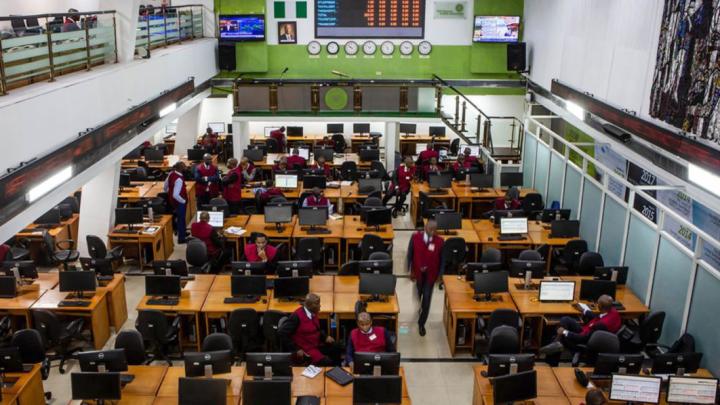Nigeria’s equities market suffered a major decline, losing N476 billion in a week as investor sentiment weakened amid economic uncertainties and foreign exchange volatility. The downturn, which affected major stocks across different sectors, was fueled by profit-taking activities, concerns over inflation, and cautious trading in response to policy shifts in the financial landscape.
The Nigerian Exchange (NGX) recorded a series of losses throughout the trading week, with key market indicators reflecting declining investor confidence. The All-Share Index (ASI) dropped as several blue-chip stocks faced sell-offs, leading to a significant contraction in market capitalization. Analysts attribute the bearish trend to a combination of factors, including liquidity challenges and uncertainties surrounding government economic policies.

One of the primary drivers of the market decline has been the continued depreciation of the naira, which has made it more difficult for foreign investors to maintain positions in Nigerian equities. Many investors have opted to reduce exposure to riskier assets, leading to sustained sell-offs in the stock market. Additionally, rising inflation has affected consumer purchasing power and corporate earnings projections, prompting cautious trading behavior.
Sectoral performance throughout the week showed declines across banking, manufacturing, oil and gas, and consumer goods stocks. Major banking stocks, which had previously driven market gains, recorded significant losses as investors locked in profits. Similarly, manufacturing firms and fast-moving consumer goods companies faced reduced investor interest due to concerns over rising production costs and foreign exchange difficulties.
Despite the week-long decline, market experts believe that long-term investors could find buying opportunities in undervalued stocks, particularly as corporate earnings reports for the quarter begin to shape market direction. Some analysts suggest that a more stable foreign exchange policy and improved macroeconomic conditions could help restore investor confidence in the coming weeks.
As the market heads into a new trading period, investors remain watchful of economic developments, regulatory pronouncements, and corporate performance updates. While the recent decline has raised concerns, market participants remain hopeful that strategic policy interventions and improving economic indicators could drive a rebound in Nigeria’s equity market.
Support InfoStride News' Credible Journalism: Only credible journalism can guarantee a fair, accountable and transparent society, including democracy and government. It involves a lot of efforts and money. We need your support. Click here to Donate
